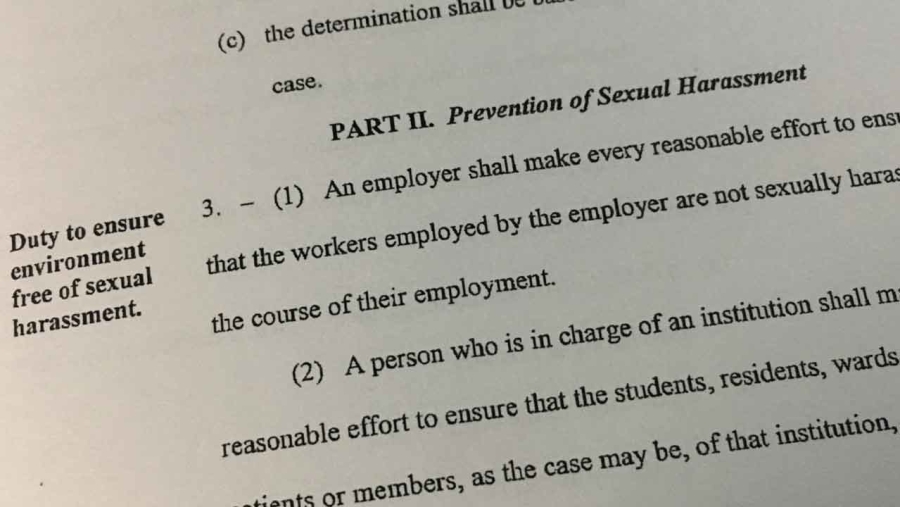Kingston, 13 October 2021 – The Minister of Culture, Gender, Entertainment and Sport, the Honourable Olivia Grange, has expressed both relief and gratitude after the House of Representatives gave its final approval to the Sexual Harassment legislation at its sitting on Tuesday (yesterday).
“I just want to commend everyone on both sides of the House and those in Civil Society for us being able to say we now have a Bill,” said Minister Grange.
The House had previously approved the Bill in July, sending it to the Senate for review. Following debate in the Senate on October 1, the Bill was sent back to the House of Representatives with 23 amendments.
Minister Grange asked the House of Representatives to accept all 23 amendments, saying that they had “strengthened the Bill”.
Among the amendments are changes to clause 4 which imposes a duty on every employer and head of institution to issue a policy statement detailing the protection of workers and students from sexual harassment.
Minister Grange explained that “there was concern with this requirement being complied with by micro employers and those individuals engaged in work in domestic spaces. To cure the concern, it was agreed that the clause be amended by giving the Minister power to acknowledge those employment circumstances where use of the policy framework document would not be appropriate.”
Clauses 5 and 6 were amended to allow for the giving of notice ‘whether by electronic means or otherwise’.
Clause 8 was amended to allow for the findings of a sexual harassment claim, including cases of exoneration, to be included in the confidential register that must be maintained at places of employment and institutions.
Another substantial amendment had to do with the role of Authorised Officers.
Minister Grange said:
“The previous Bill vested the investigative and adjudicating functions in the Tribunal. The amendment was to cure the mischief of the Tribunal being judge in its own cause. Thus, clause 12 was re-formulated by vesting the powers of investigation in the Authorised Officers who will be the field officers appointed to the Bureau of Gender Affairs. These officers will be specially trained to carry out their investigative duty under the Act.”
Other amendments dealt with the power of the Tribunal to be created under the legislation.
“The amendment was considered necessary to ensure that the Tribunal was not being given broad powers that originally belonged to the Court. As a result, clause 36 no longer allows the Tribunal to order reinstatement of a complaint as such an order would squarely fall within the labour remit of the IDT and not this Tribunal set up to hear sexual harassment matters. The Tribunal is not left at large to consider any other such awards as it so determines, and its compensation limit has now been capped at $900,000. The compensation of $900,000 can be recovered summarily in Court as a civil debt.”
There were also amendments for dealing with false complaints.
According the Minister Grange:
“Clause 41 seeks to regulate the filing of false complaints; however, this only speaks to false complaints being made before the Tribunal. There is no recognition in the clause of instances where false complaints are made in the institution or within an organisation. Clause 41(1) has been deleted and replaced with this formulation: ‘(1) A person who knowingly makes a false sexual harassment claim or a false complaint commits an offence.’
Both terms — complaint and sexual harassment claim — are defined and the amendment now makes it clear that a false complaint or false sexual harassment claim are both wrong and actionable in the Parish Court to a fine not exceeding $1,000,000.”
Arrangements will now be made for the implementation of the Sexual Harassment Act, including the establishment of the Tribunal to hear matters, the recruiting and training of Authorised Officers, as well as the intensification of a public education campaign.
END
 Government of Jamaica
Government of Jamaica
